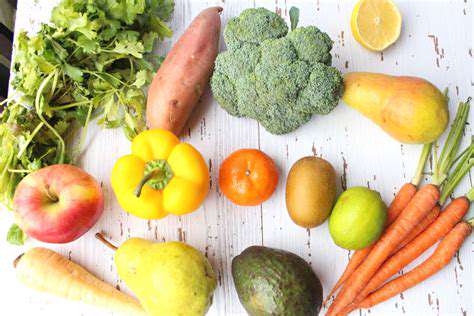Understanding Food Waste: Reducing Your Footprint
Jul 19, 2025 / btwgardenmachine/
Reducing Food Waste in Your Diet and Lifestyle

Understanding the Impact of Food Waste
Food waste is a significant global issue, contributing to environmental problems and economic losses. A staggering amount of edible food is discarded every year, from individual households to large-scale restaurants and supermarkets. This wasted food represents not only a loss of resources used in production, processing, and transportation but also a significant impact on our planet's finite resources.
The environmental consequences of food waste are considerable, including increased greenhouse gas emissions from landfills and the depletion of water resources used in agriculture. Moreover, the sheer volume of wasted food highlights the need for changes in our consumption patterns and attitudes toward food.
Planning and Preparation: Key Strategies
Effective planning is crucial in reducing food waste. Creating a detailed meal plan for the week can help you purchase only the necessary ingredients, minimizing the risk of spoilage. By carefully considering what you already have in your fridge and pantry, you can avoid buying duplicates and ensure that ingredients are used before they expire.
Proper storage is equally important. Knowing how to store different foods correctly, understanding their optimal temperatures and timelines, can significantly extend their shelf life. This simple act of proper storage can help prevent many food items from going bad before you have the chance to use them.
Smart Shopping Habits for Sustainability
Making conscious choices while shopping can greatly reduce your food waste footprint. Prioritize buying only what you need, and avoid impulse purchases of food items that might not be consumed before they spoil. Also, consider purchasing in bulk for items you use frequently, but be sure you have proper storage solutions to prevent spoilage.
When shopping for fresh produce, select items that are in peak condition. Avoid overripe fruits and vegetables, as these will likely spoil faster. This careful attention to quality will lead to less waste.
Proper Food Storage Techniques
Proper food storage is essential for preserving the freshness and extending the shelf life of your food items. Understanding the unique storage requirements for different types of food is key to avoiding spoilage. Properly storing your food can significantly reduce the amount of food wasted in your home.
Freezing is a fantastic method to preserve leftovers and excess produce. Many fruits and vegetables can be frozen for later use, ensuring they are available when needed, reducing the risk of throwing them out.
Utilizing Leftovers Creatively
Leftovers are a great way to reduce food waste and save money. By repurposing leftovers into new meals, you can creatively and deliciously use up what you already have. Don't let leftover cooked food go to waste. Get creative and think of ways to incorporate them into new dishes.
There are endless possibilities for transforming leftovers into new and exciting dishes. Look for recipes that use up leftover ingredients or think creatively about ways to incorporate them into your next meal.
Educating Yourself and Others
Educating yourself and others about the importance of reducing food waste is a vital step in promoting sustainability. Sharing tips and knowledge with friends, family, and communities can create a ripple effect of positive change. Learning about the different ways to reduce food waste can significantly improve your environmental impact.
Resources like online articles, cookbooks, and local workshops can provide valuable insights and practical advice on minimizing food waste. By increasing awareness and providing practical solutions, we can collectively work towards a more sustainable future.